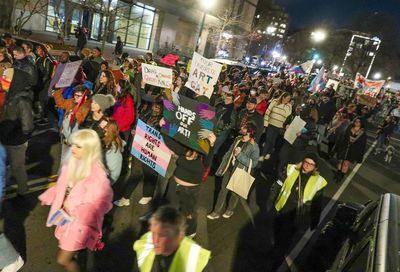Ban on Homosexuality Reinstated in Trinidad and Tobago
Reversing a verdict striking down the country's prohibitions on same-sex intimacy, an appeals court found that only Parliament can change the law.

Trinidad and Tobago reinstated its ban on homosexuality, which was overturned as unconstitutional by the Caribbean nation’s High Court in 2018.
LGBTQ activist Jason Jones had challenged the colonial-era anti-sodomy law in 2017, claiming that prohibitions on “buggery” and “acts of serious indecency” between two men violate LGBTQ individuals’ right to privacy and freedom of expression.
Judge Devindra Rampersand ruled in Jones’ favor, finding that two portions of the Sexual Offenses Act, as applied to consenting adults, are unconstitutional.
The Attorney General’s office appealed the ruling.
On March 25, 2025, the country’s Court of Appeals reversed that decision, finding, in a 2-1 decision, that Rampersand overstepped his authority and that only Parliament can overturn the prohibition on homosexuality, reports Trinidad and Tobago Newsday.
“Judges cannot change the law,” the appeals court’s 196-page ruling states. “We give effect to Parliament’s intention…. It is, therefore, left to Parliament to repeal the criminalization of buggery and the related offense of gross indecency by legislation.”
However, the high court did amend portions of the law, maintaining its prohibitions on buggery, or anal sex, as a criminal offense, but reducing the maximum sentence for such an offense from 25 years in prison to a five-year prison sentence.
The appeals court also modified provisions criminalizing acts of “serious indecency,” referring to actions that do not constitute vaginal or anal intercourse but are done for sexual gratification.
As part of those modifications, the court threw out the five-year penalty recommended by the country’s 1986 law and reinstated a previously repealed 1925 law criminalizing “gross indecency,” which carries a penalty of two years in prison.
The net effect of the ruling is that anal and oral sex are both illegal in Trinidad and Tobago, although penalties for those offenses have been reduced, and the law does not apply to married or heterosexual couples conducting such acts consensually, in private, reports Erasing 76 Crimes.
Like many former European colonies, Trinidad and Tobago has a long history of anti-LGBTQ laws, including one that prohibits LGBTQ people who are not citizens from even entering the country.
Additionally, many citizens within the country adhere to a conservative form of Christianity, meaning that churches and religiously affiliated organizations — which support prohibitions on homosexuality — hold significant political sway.
Jones criticized the court’s rationale on social media, reports GCN.
“As an LGBTQ+ citizen of Trinidad and Tobago, this regressive judgment has ripped up my contract as a citizen of T&T and again makes me an unapprehended criminal in the eyes of the law,” Jones said. “The TT Court of Appeal has effectively put a target on the back of LGBTQIA+ people and made us lower-class citizens in our own country.”
Support Metro Weekly’s Journalism
These are challenging times for news organizations. And yet it’s crucial we stay active and provide vital resources and information to both our local readers and the world. So won’t you please take a moment and consider supporting Metro Weekly with a membership? For as little as $5 a month, you can help ensure Metro Weekly magazine and MetroWeekly.com remain free, viable resources as we provide the best, most diverse, culturally-resonant LGBTQ coverage in both the D.C. region and around the world. Memberships come with exclusive perks and discounts, your own personal digital delivery of each week’s magazine (and an archive), access to our Member's Lounge when it launches this fall, and exclusive members-only items like Metro Weekly Membership Mugs and Tote Bags! Check out all our membership levels here and please join us today!























You must be logged in to post a comment.